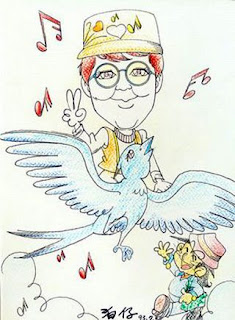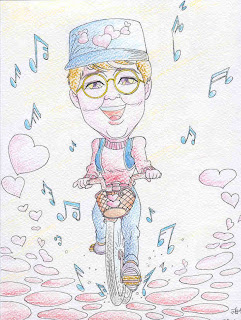Taipei Times (英文台北時報) Jan. 11, 2011
Ku Yenlin 顧燕翎
Translator: Julian Clegg 朱力
Translation Section, Taipei Times
英文台北時報 編譯組
More than 50 legislators have proposed an amendment to the Hospice Palliative Care Act (安寧緩和醫療條例) that would allow terminally ill patients who are nearing death, with the consent of their families, to have ventilators and other life-support systems removed, so as to avoid adding to the suffering of individuals and their families by artificially prolonging the process of death. The proposed amendment is humane and in accordance with worldwide trends, and it is a change that many elderly people have long been hoping for.
In August last year, the Department of Health amended its standard advance healthcare directive, which is a statement people can sign to indicate what kinds of invasive treatment they do not wish to receive in future. Unfortunately, the options offered to individuals and their families by the directive apply only to the final stages of a person’s life, when he or she is near death or dying or has no vital signs, by which time that person may have already endured great suffering. Furthermore, the directive only allows a person to refuse resuscitation, which includes the insertion of ventilator tubes, external cardiac compression, injection of emergency medications, electric cardiac defibrillation, cardiac pacing and artificial ventilation.
The proposed amendment would make the conditions slightly more flexible, in that ventilator tubes, having already been inserted, could be removed upon request. But what about the prolonged suffering endured by patients in the course of aggressive but futile treatment before ventilator tubes are inserted? Do people have to accept such drawn-out suffering, while the public pays the bill?
Birth, old age, sickness and death are the common destiny of all living things, and we all have to come to terms with the reality of death when our lives are drawing to an end. For some people, quality of life is more important than length of life. When bodily functions have deteriorated so much that they cannot be revived through human intervention and a person is nearing the end of his or her life, that person should be allowed to make a decision while he or she still has clarity of mind about whether to depart this world naturally or to continue receiving medical treatment.
In the course of their deliberations on the proposed amendment to the Hospice Palliative Care Act, lawmakers would do well to refer to the experience of advanced countries, where people are allowed to make choices early on and where those choices are respected.
In Finland, for example, an individual may, while still healthy, sign a living will worded as follows: “I order that in case I, as a consequence of a serious illness or accident, lose my legal capacity on account of, e.g. unconsciousness, or infirmity due to old age, all modes of treatment artificially maintaining my vital functions shall be excluded, unless reliable reasons exist for the possibility that I would recover ... In case a treatment with a prospect of recovery has been started but proves to be futile, it has to be discontinued immediately.”
In California, people may make a living will worded as follows: “In cases where both (1) my attending physician determines that I am no longer able to understand, appreciate and direct my medical treatment, and (2) two physicians — one of whom is my attending physician and the other is qualified and experienced in making such diagnosis — have personally examined me and have diagnosed and documented in my medical records that I am either terminally ill or that I am in a state of persistent unconsciousness with no reasonable expectation of recovery, I direct that my healthcare providers and others involved in my care provide, withhold, or withdraw treatment in accordance with the choices I have stated below.”
This is followed by a list of treatments that should be provided, withheld or withdrawn under such circumstances, including artificially supplied nutrition and hydration (including tube feeding or food and water), surgery or other invasive procedures, heart-lung resuscitation, antibiotics, renal dialysis, mechanical ventilator, chemotherapy and radiotherapy, and “all other life sustaining medical procedures that are merely intended to keep me alive without reasonable hope of improving my condition.”
As Taiwan is facing great changes in its social and population structure, the effective use of care resources should be an important policy issue at the national level. For the sake of reducing human suffering, I hope our decision-makers can set aside excessive caution and open up more choices for people regarding their own life and death.


遊民畫家泊仔送的畫像,在左圖中白鳥的右下方,就是他自己。
我想我是一個認真的人,有時候到了嚴肅的地步。還記得剛入小學的第一課就是ㄅㄆㄇㄈ,老師說下週要考,可是一週過去了,我還沒全學會,急得不得了,回家就發燒了,媽媽還得幫我惡補。下星期老師竟然完全忘了考試這回事!而我至今餘悸猶存。
最近一位好友退休,她在嚴肅這件事上比我更勝一籌,在我們為她舉行的餐會中一絲不苟地討論未來生活的意義,我勸她不必急,不妨先混一混。李豐(寫《我賺了四十年》的那位台大醫師)在電話上聽了我的轉述,大笑道:「你混得怎樣?」我說:「不錯啊!」她卻不以為然:「我聽妳聲音就知道妳還是那樣,說話太快了!」幾十年來她一直勸我慢下來。慢才能品味生活,才能靜攬人生,才能修鍊身心。
不僅需要調整步調,我也想改變自己的寫作風格,輕鬆一點,閒適一點,更多一點生活,多一點感覺。渴望有自己的部落格,不被字數、時尚、市場、刊物風格、主編好惡綁住。大部分是為自己寫吧,也為了分享,至於未來,就交給上天了。
email: yenlinku@mail2000.com.tw
2011-01-11
訂閱:
張貼留言 (Atom)






沒有留言:
張貼留言